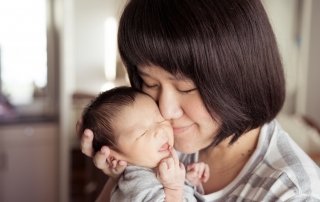Is It Postpartum Depression or Postpartum Anxiety? What’s The Difference?
Meet Christine. She is a married 30-year-old woman who just had her first baby about 3 weeks ago. While the pregnancy went smoothly, the experience of labor and delivery was difficult. After nearly 20 hours [...]

![By Vera Kratochvil [Public domain], via Wikimedia Commons](https://womensmentalhealth.org/wp-content/uploads/2015/06/Mother_Kissing_Baby-320x202.jpg)






